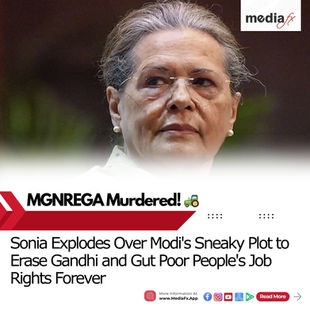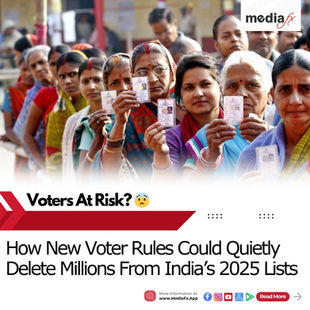🇮🇳 India's Polio Watchdog 🕵️♂️ to Vanish? Experts Cry Foul! 🚨
- MediaFx

- Jun 4, 2025
- 2 min read
TL;DR 🧠
India is planning to phase out the National Polio Surveillance Network (NPSN) starting June 2025, reducing its 280 units to 140 by 2027. This move aims to integrate polio monitoring into the broader Integrated Disease Surveillance Programme (IDSP). However, health experts are raising alarms, citing ongoing polio threats in neighboring countries and potential job losses for thousands of health workers. The decision is seen as premature and risky, especially for vulnerable communities.

📉 NPSN Shutdown: A Bold Move or a Blunder? 🤔
The Indian government, in collaboration with the World Health Organization (WHO), plans to gradually dismantle the National Polio Surveillance Network (NPSN) starting June 2025. The network's units will be reduced from 280 to 190 in 2025-26, and further to 140 by 2026-27 . The rationale is to integrate polio surveillance into the Integrated Disease Surveillance Programme (IDSP), aiming for a more streamlined approach.
🧠 Experts Sound the Alarm Bells 🔔
Public health experts are expressing serious concerns over this decision. Dr. Jacob John, a leading virologist, criticized the move, stating it's too early to dismantle a steady surveillance system crucial for polio eradication and acute flaccid paralysis surveillance . He advocates for replacing the Oral Polio Vaccine (OPV) with the Injectable Polio Vaccine (IPV) before any withdrawal from the polio program.
The global resurgence of polio, including vaccine-derived polioviruses and circulating vaccine-derived poliovirus type 2, heightens risks if India relaxes its polio surveillance infrastructure. Wild Poliovirus Type 1 remains in Pakistan and Afghanistan, posing challenges to global polio eradication .
👷♂️ Job Insecurity Looms for Health Workers
The transition plan has unsettled NPSN staff, many of whom are employed under Special Services Agreements, leading to job insecurity concerns. Each NPSN centre employs at least four staffers, raising concerns about widespread job insecurity in the polio eradication workforce.
Dr. Roderico H. Ofrin, WHO’s India Representative, assured a structured transition to avoid gaps in polio surveillance and AFP case definition practices. However, his letter lacked concrete assurances, adding to anxiety among those involved in polio surveillance and acute flaccid paralysis surveillance .
🛡️ MediaFx's Take: A Risky Gamble on Public Health
From a working-class and socialist perspective, this move appears to prioritize cost-cutting over public health. The NPSN has been instrumental in India's fight against polio, and its abrupt phase-out could jeopardize years of progress. The decision seems to disregard the potential risks to vulnerable communities and the livelihoods of thousands of health workers. It's imperative that the government reconsiders this plan, ensuring that public health and worker security are not compromised in the pursuit of administrative efficiency.













































